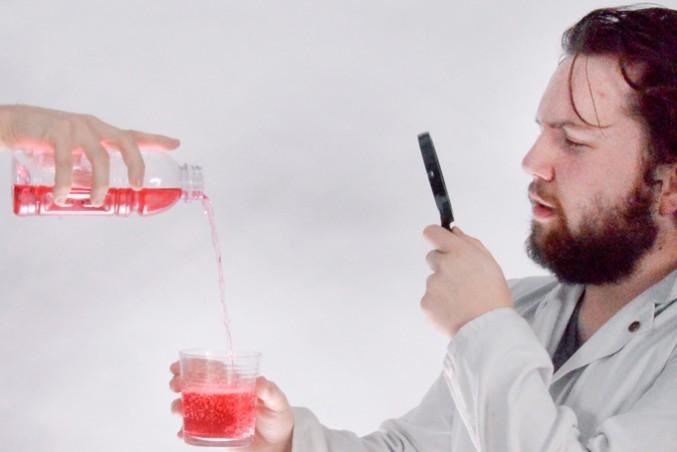By Aidan Macnab
A new study says vitamin and energy drinks come with a healthy dose of bogus.
After three years of research, a 2014 study done by a Ryerson professor and graduate concluded food companies have “little evidence” to defend the alleged health benefits of their energy and vitamin drinks.
“There is nothing natural about them and there’s nothing healthy about them,” said Ryerson nutrition professor Rena Mendelson. “Markets just realize that health sells products.”
Mendelson and Naomi Dachner, a nutrition and dietetics graduate, challenged companies who market energy and vitamin drinks as health or supplement products.
“The labels are very tonguein cheek, but imply that these drinks are going to alter your emotional state and give you a pick-me-up,” said Dachner, presently working at the University of Toronto’s nutritional sciences department.
Researchers in the study analyzed the nutrient compositions of 46 energy drinks, nutrient-enriched waters and juices. Red Bull, Red Rain, Aquafina and Vitaminwater were some of the products in the study. The study’s main demographic was men aged 19 30 due to their higher nutrient requirements.
The study concluded that these drinks offer no nutritional benefits or rejuvenation to consumers.
This is because most people’s nutritional requirements are met with other sources and the nutrients they do need are rarely added to the beverages.
“Caffeine is one thing; people have had health scares on them,” Dachner said. “But nutrients are another thing. These drinks are completely disconnected from our health needs.”
Mendelson said Canadians’ lack of magnesium and potassium is unaddressed by these drinks.
“[Food companies] are trying to appeal to people to think that these water products will give an impact on your life,” said Mendelson. “They’ll make you feel better, they’ll make you look better, they’ll improve your relationships, things that are just plain silly.”
The study states taking nutrients beyond one’s daily requirement is not beneficial.
Eighty-three per cent of drinks studied had at least one nutrient exceeding required amounts; the majority had three or more.
“[Food companies] create a false impression that [consumers are] being enriched with things they don’t actually need,” Dachner said.
The Canadian market began to see an abundance of these products when Health Canada’s 2004 Natural Health Products Directorate classified energy and vitamin drinks as natural health products (NHPs).
These products did not have to include a nutrition table on labels but needed a “recommended use statement.”
In October 2011, Health Canada announced energy and vitamin drink products require a nutrition table. Although the move eliminated recommended use statements that went “beyond conventional nutritional science,” graphics and text on drink labels conveyed similar messages to the consumer.
Mendelson said these drinks also could be harmful.
These former NHPs have a considerable amount of sugar, as a bottle of Vitaminwater has 31 grams; in comparison, one 355 ml. can of Coca-Cola Classic contains 39.
In 2010, Coca-Cola – owning 83 per cent of the studied drinks alongside Pepsi – had similar findings.
An American federal judge wrote in his court ruling that Coca-Cola’s lawyers suggested no consumer could “reasonably be misled” into believing Vitaminwater is healthy.
Dachner said she’s interested in what the long-term effects of these products will be and how this “unravelling story” will affect public health.
Coca-Cola brand and business communications manager Kate Hillyar wrote via email that the company is making “great effort to ensure [their] product labels, marketing and advertising are clear and honest with consumers.”
Despite this, the study recommends the government continues to research and “scrutinize” the labeling of drinks so consumers aren’t misled.










Leave a Reply